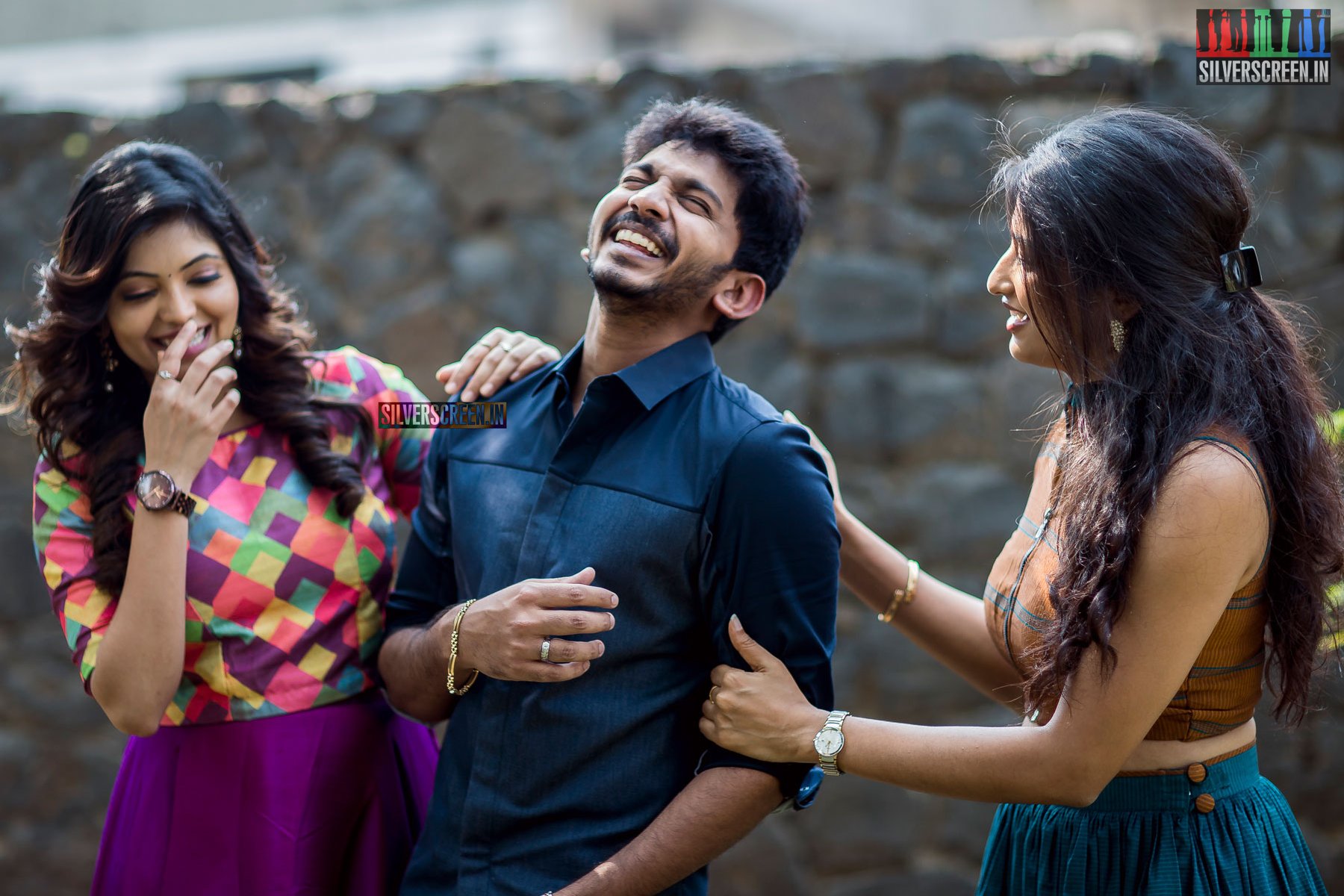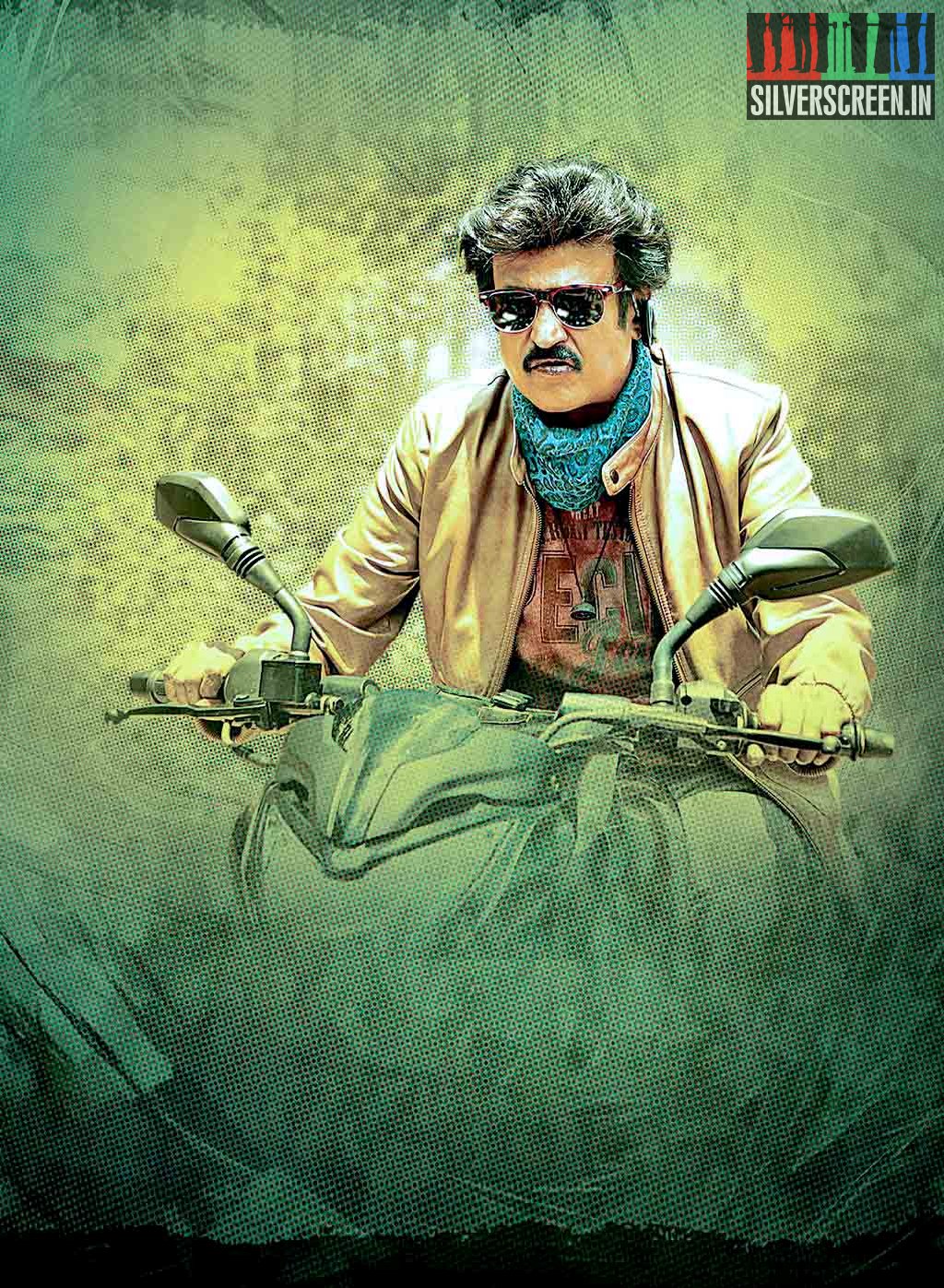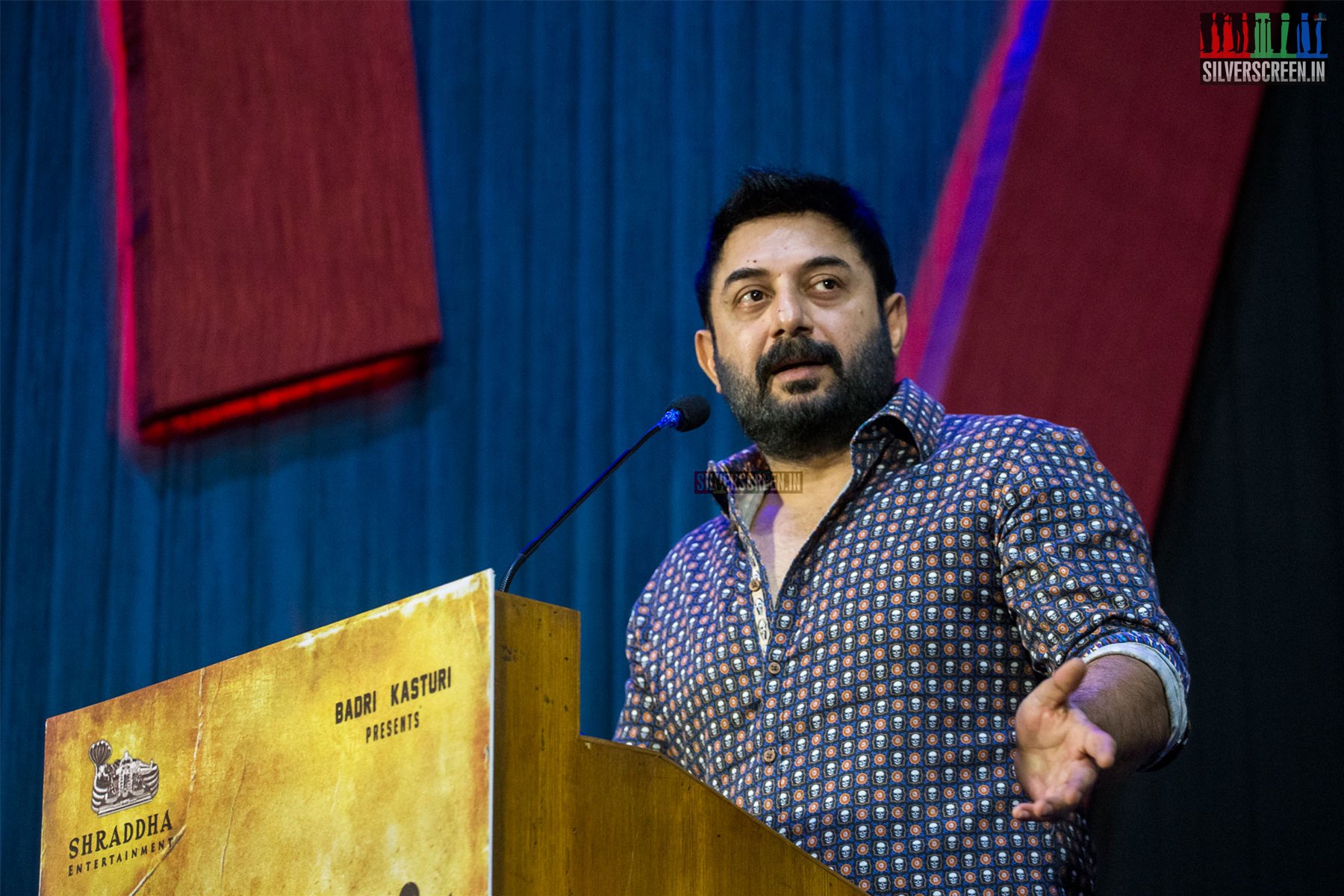Having watched Samuthirakani over two consecutive weeks – in two releases – there seems to be some concerted effort afoot. If in Nimir, Samuthirakani had been the frowning, brawny man who took to the cudgel like it was his birthright, in Madura Veeran, he’s the venerated oor thalaivar. Yes, as diverse as that. There’s even a whiff of Ejamaan about him, not by way of an heir of course, for here, it’s his heir that runs the story when he needs to exit the scene. But, Samuthirakani as Rathnavelu is the leader of a hamlet in Madurai – he kicks up a storm of dust when walking, big powerful strides; is muscly when required, and is also the wise man whom everyone loves and a few hate. His son, he would love to train to be the Madura Veeran – one who can tackle a bull as effortlessly as wearing a veshti neat.
Shanmugha Pandian isn’t the flamboyant actor that his father is – and that’s a great thing. While he does get paid all dues as a hero, right down to the token garland, Shanmugha Pandian as Durai is restrained. When he comes to know that a woman (Meenakshi) finds him attractive, a tiny smile tugs at the corner of his lips, but the rest of the time, he tries to be the part-good part-vengeful son who returns to his oor to reestablish a long abandoned tradition – Jallikattu.
That way, Madura Veeran has a lovely canvas, with flourishing rural touches that seek to engage when the movie begins. When the eponymous Madura Veeran returns, everyone thinks he’s here to marry, find a woman from his oor. The women though, are to be quite feisty, delightfully so. But the same woman who tells him to get lost when he makes known a preference for those who can make meen kuzhambu, quickly learns to make some. It’s a puzzling contradiction, but one that doesn’t warrant much attention anyway.
Recommended
Jallikattu makes fleeting appearances in the film over news clippings on television, the bulls are all there, a semblance of the sport is shown towards the end, but the film doesn’t quite narrate the tale of the families – and community – with an almost divine reverence for bulls. It shows a young boy playfully sparring with a calf, and much later, the whole village congregates at its death, but Madura Veeran is more about the politics of the sport rather than its making. It’s steeped in caste politics, feudal lords who war over customs and traditions, but doesn’t quite explain the intensity with which the village heads go to war with one another – and also kill. Granted, Shanmugha Pandian does raise pertinent questions about caste, but you want to know why; why does it matter at all, why are we being shown seemingly meaningless squabbles over who gets to inaugurate the event rather than the participants of the event themselves? The families who raise the bulls, the animals that are chosen for the event, the loving devotion that they are shown, the almost strange way in which a bull’s performance impacts its owner’s popularity among his men – those are the stories that need to be collected, developed on, narrated. Instead, Madura Veeran turns out to be one of veecharuvas slicing the air and several necks, blank noise about caste politics, and a bunch of youth who crack bad jokes.
*****
The Madura Veeran review is a Silverscreen original article. It was not paid for or commissioned by anyone associated with the movie. Silverscreen.in and its writers do not have any commercial relationship with movies that are reviewed on the site.



